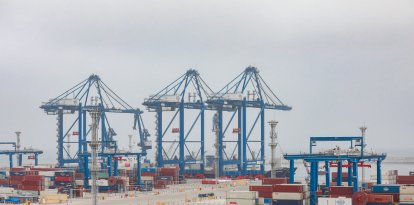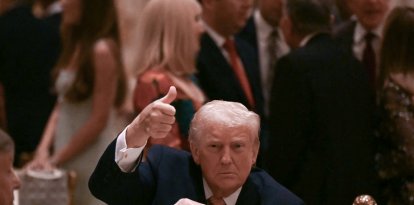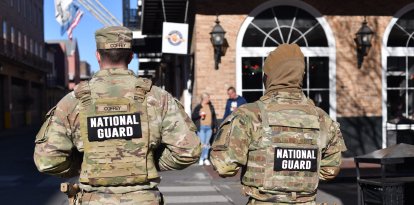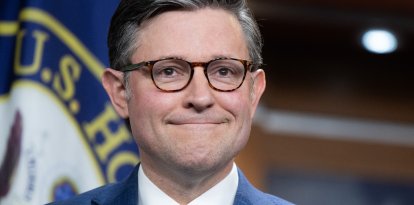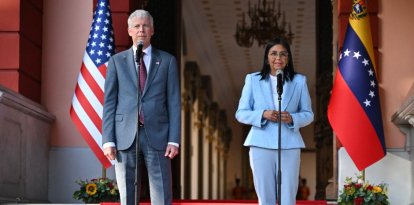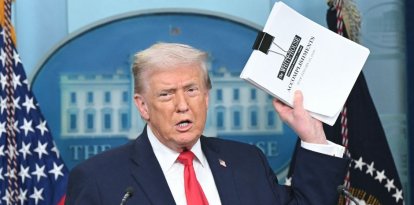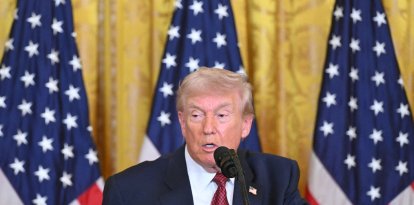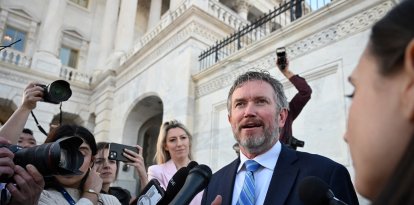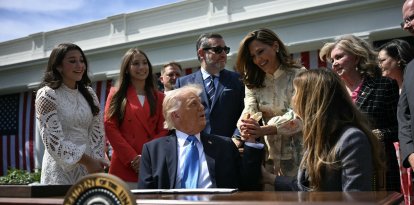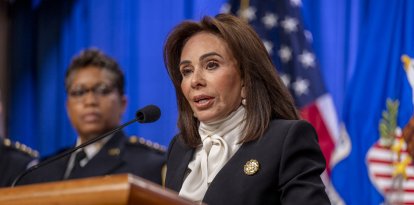Biden-Xi Summit: White House keeps the meeting agenda under wraps, while San Francisco cleans its streets of homeless
The House Select Committee on the CCP asked Biden to use the meeting to modify his policies towards China, as war is becoming "more, not less likely."

(Cordon Press)
War in Israel and Ukraine, growing tension in Taiwan, restrictions on semiconductors, the fight against fentanyl (whose ingredients are produced by Chinese laboratories), state sponsored misinformation... The array of topics to be discussed in the bilateral meeting between President Biden and his Chinese counterpart Xi Jinping is extensive.
The second meeting between the leaders, which according to senior U.S. officials is aimed at "stabilizing" relations, takes place a year and a day after their first. After that meeting in Bali, Indonesia, tensions between the two nations have only increased. The Chinese state-run media, which highlights that Xi is making the visit "at the invitation" of Biden, blames the United States for the deterioration of the countrys’ relations:
For now, the White House has withheld most of the fine details regarding the meeting that will take place in the San Francisco Bay Area. The exact location has not yet been specified either. Official sources have informed the AP, however, that next Wednesday's meeting will be organized in series of topical sessions, in which the two leaders will seek to discuss each issue in depth.
The specific topics on the agenda remain under lock and key (not even the return of the giant pandas Tian Tian, Mei Xiang and Xiao Qi Ji from the Smithsonian National Zoo is theoretically off the table). However, the South China Morning Post announced Saturday that Biden and Xi would sign an agreement to prohibit the use of artificial intelligence (AI) in autonomous weapons, which select and attack targets without human intervention. The pact would also ban the use of AI in the control and deployment of nuclear warheads.
"It is essential to keep a human in the loop in nuclear command and control given some of the problems we’ve seen so far with AI," said Bonnie Glaser, managing director of the German Marshall Fund of the United States, in statements to the South China Morning Post. Regardless of whether significant results can can be achieved, there are experts who warn that the importance of the bilateral meeting is the meeting itself. In the words of researcher Ian Johnson:
Too high a cost?
Less cautious than the White House has been the House Select Committee on the CCP, which this weekend released a list of commitments that it hopes Biden can obtain from Xi. These include releasing all Americans detained on Chinese soil, imposing greater controls to identify those involved in trafficking fentanyl ingredients, and ending all military operations in Taiwan's air defense identification zone.
In a letter addressed to Biden, 13 of the committee’s members condemn the Chinese president for not having imposed any sanctions on senior officials from the CCP or in Hong Kong for "the erosion of Hong Kong's autonomy" and abuses against the Uyghur minority in Xinjiang.
Republican Mike Gallagher, the committee's chairman, said during an interview Saturday that the cost of the meeting has been high, perhaps too high. Not only did the government invest months of "high level diplomacy," including visits from officials like John Kerry, "whatever John Kerry is," but there were also continuous attempts to appease China, with the U.S. looking the other way or holding back in its response in cases such as the spy balloon or the investigation into the origins of the COVID- 19.
According to Gallagher, this policy "makes war more, not less likely, because Marxist-Leninist regimes like this tend to get more aggressive the more you accommodate them."
San Francisco cleans its streets
"With APEC coming, I am concerned about historical encampments that are close to priority areas," San Francisco Superintendent of Street Environmental Services Christopher McDaniels wrote in an email obtained by the San Francisco Chronicle.
With "APEC" (Asia-Pacific Economic Cooperation), McDaniels is referring to the multilateral forum hosting more than 20 countries that opened this Sunday in the Californian city that will serve as the host for the meeting between the Chinese and American leaders. By "historical encampments," he is referring to the groups of homeless people who live in tents on the city’s sidewalks.
In another email, McDaniels’ boss DiJaida Durden is concerned about the appearance of more people on the streets: "[APEC] is coming and we need to stay on top of the growing encampments; do we have a plan?"
In images shared on social media, the change in the city is visible:
"They’ve cleared out the tents that were near the Moscone Center on Howard Street, which tells me the city had the capability to do this all along — instead they just do the bare minimum," protested activist and local resident Ricci Lee Wynne to The New York Post.
Potential protests
In addition to hosting the more than 20,000 APEC attendees, San Francisco also expects to receive a flow of protesters throughout the week.
Some marches began Sunday, such as the one organized by the No to APEC Coalition. Pro-Palestine, anti-Xi Jinping, anti-Bongbong Marcos (president of the Philippines) and climate activist marches have also been organized.
"People are welcome to exercise their constitutional rights in San Francisco, but we will not tolerate people committing acts of violence," said San Francisco Police Department Chief Bill Scott, who also acknowledged to the AP that several protests are expected. "We will make arrests when necessary."














